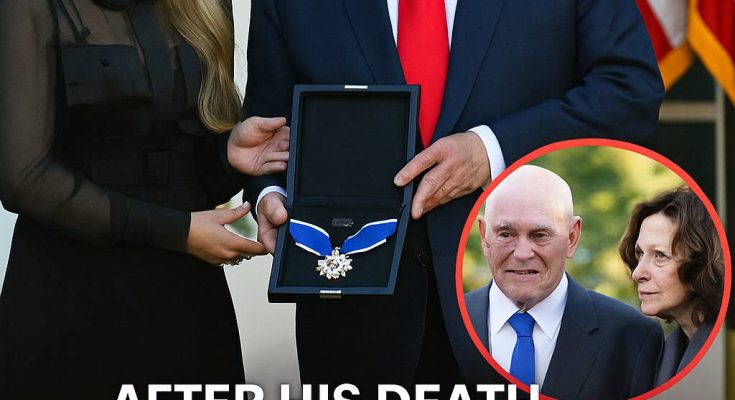The activist’s parents made their first public appearance since Charlie Kirk was killed on September 10, attending a Rose Garden ceremony where President Donald Trump posthumously awarded him the Presidential Medal of Freedom. The event, held on October 14—what would have been Kirk’s 32nd birthday—was solemn and tightly choreographed, but the family’s body language quickly became the focus of online chatter after clips began circulating.

In one widely shared video, Trump and Vice President JD Vance stood with Erika Kirk as “Amazing Grace” played, while Charlie’s parents, Robert W. and Kathryn Kirk, stood a short distance away with another person positioned between them and their daughter-in-law. Viewers offered a mix of empathy and speculation. Some asked why the widow wasn’t beside the parents, reading the spacing as a sign of strain; others cautioned that grief is complicated and moments captured out of context can mislead. Several commenters focused purely on the parents’ visible sorrow—describing Kathryn as distraught and Robert as hollowed by weeks of tears—while a few ventured further, drawing their own conclusions about glances and posture. As with most viral body-language debates, interpretations ranged from compassionate to conspiratorial.

Inside the ceremony, the tone was unequivocally reverent. Trump praised Erika’s composure in the weeks since her husband’s death and cast Charlie as an “American patriot of the deepest conviction,” a “fearless warrior for liberty” whose influence on conservative youth would endure. He emphasized Kirk’s founding of Turning Point USA at 18, his role in energizing young voters, and his public expressions of Christian faith. The president referred to the shooting at Utah Valley University as a “horrible, heinous, demonic act of murder,” framing Kirk’s final hours as consistent with a life spent championing his beliefs.

The audience reflected the moment’s political weight: senior administration officials, congressional leaders, and high-profile conservative media figures gathered alongside international guests, including Argentina’s President Javier Milei.
For supporters, the tribute cemented a legacy; Kirk became the first Presidential Medal of Freedom recipient of Trump’s second term, joining a roster of prior honorees from the former president’s first term that included figures like Jim Jordan, Rush Limbaugh, and Orrin Hatch.

As the clips made their rounds, the conversation online didn’t settle on a single narrative. Some viewers read distance as discord; others saw only the rawness of grief on a day meant to celebrate a life cut short. What remained consistent was the shared recognition of loss—the sense that a family, however arranged on camera, was navigating a public honor and private pain at the same time.



